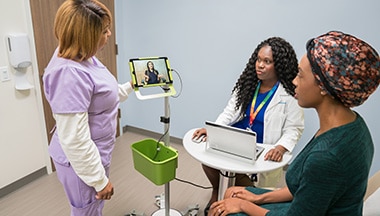You can talk to anyone on your care team about your drug or alcohol use — there’s no wrong door. You can start the conversation at any time, and we’ll connect you to the next appropriate level of care.
We also screen for alcohol use during primary care visits. If your doctor brings up concerns, it doesn’t mean you have a problem. It’s just another way they’re looking after your health — no different than taking your blood pressure and sharing the results with you. The goal is to help you understand the risks, empower you to make informed choices about your health, and help you take whatever steps you’re ready to take.





